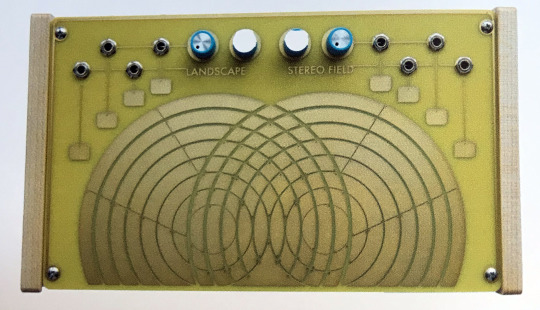#Jean-Yves Leloup
Explore tagged Tumblr posts
Text
“The first form is darkness; the second is desire; the third is ignorance; the fourth is zeal for death; the fifth is the realm of the flesh; the sixth is the foolish wisdom of the flesh; the seventh is is the wisdom of the wrathful person. These are the seven powers of wrath.”
- Mary 9:18 - 25, The gospel of Mary Magdalene
The “powers” “sins” or “demons of the ego. Meggan Watterson, Author of “Mary Magdalene revealed” believes these are the seven demons that Jesus expelled from Mary, referred to in Luke 8:2.
Mary’s Gospel is an ascent narrative as it describes the path navigated to liberate the soul during life. Mary is regarded as the first apostle because she followed in Jesus’s footsteps and witnessed his death and resurrection. The Gospel reveals the wisdom that Christ gave only Mary, and features her telling the Disciples what they spoke of.
The powers are the states we humans embody through life, that keep us stuck, and separated from God. They are regarded as sins only by their nature of adultery. I interpret this as betraying God. They are what makes us human. Christ was both equal parts human and divine, he went on this journey to ascend, and shared his wisdom with Mary.
Then Peter said to him, “You have been explaining every topic to us, tell us one thing. What is the sin of the world?” The Saviour replied “There is no such thing as sin; rather you yourselves are what produces sin when you act in accordance with the nature of adultery, which is called ‘sin’. For this reason, the Good came among you, persuing (the Good) which belongs to every nature.”
- Mary 3:1 - 5
Radical, huh? No wonder this gospel was hidden underground for safety, and not considered canon. Discovered in Egypt in the late 1896, written in Coptic and said to have been written in the second century, before the bible was complied in the third century. There are three known copies found. It’s a gnostic text and is part of the Berlin Codex.
Meet the Demons: a deep dive
When someone says they’re “facing their demons” these are what I think of. If it’s our humanness that makes us sin, then are we inherently sinful? I’m not sure I agree with that. We’re humans, that isn’t wrong or shameful. This is what the Gospel is telling us. These “demons” are parts of our identity we shed when we become more like Jesus. It’s not a infinite state we’re always in. We’re not God. We return to ourselves every time we return to God. We become more like Christ when we return to God. Our Salvation is within us all along.
Learning about these powers made me feel seen, humble and grateful to not be alone. This perspective allows me to see my behaviour and allows me to confess and forgive and pray. I’m less likely to judge others, and it gives me hope on my journey of faith.
Darkness
- hopeless, lack of faith, despair, depression, heaviness, trapped, stuck, loneliness
Desire
- clinging, craving, attachment, not accepting what you have and how things are, wishing for things to be different, greed, insecurity, lack
Ignorance
- lack of awareness, voluntary ignoring, small mindedness, unconscious state we fall into and act from. not indicating to the deficient of character or intelligence, ignorance can save us (only handle so much at once, freeze response, disassociation- not moral failing)
Zeal/Craving for Death
- not necessarily suicide, but gluttony. Making choices that neglect and endanger the health of others or ourselves. Extremes of pleasure that harm body. Destruction and hurt to ourselves. Soul is forgotten.
Realm of Flesh
- enslavement to physical body, when we fully identify with body and forget we are more than that, a soul, not just a physical body with needs. Relates to lust and greed when we put our temporary gratification over someone else’s. Forcing physical needs on someone who dost not consent.
Foolish wisdom of Flesh/False peace of flesh
- sloth. Patterns of inaction, lead to not wanting to do anything. Procrastination, fear, reluctance to Change, stagnation, would rather suffer than accept the reality and make a change.
Wisdom of Wrathful Person
- anger is healing, responsibility to not hurt others with it. Not see others as worthy of disrespect, worthy of harm and pain.
Isn’t the power that is harmful, but the presence of the power and absence of the soul.
I live my life based on the Bible, The Gospel of Thomas, Philip and Mary, and the Love Ethic described in bell hooks book ‘all about love’
God Bless <33
#queer christians#trans christians#quotes#mary magdalene#mary magdalene revealed#Meggan Watterson#the gospel of Mary magdalene#Cynthia bourgeault#Jean-Yves Leloup#Karen King
8 notes
·
View notes
Text
Évangile apocryphe
Dans cette odyssée, Jean-Yves Leloup nous invite à explorer une nouvelle traduction et une interprétation inédite de l’Évangile de Vérité, mis au jour à Nag Hammadi en 1945. Cet enseignement s’adresse non seulement à toutes celles et ceux qui sont curieux de connaître les textes à l’origine du christianisme, mais aussi et surtout à celles et ceux qui s’interrogent sur le sens de leur existence,…

View On WordPress
0 notes
Text
“Non esiste un atteggiamento giusto, esistono solo atteggiamenti adattati.” – Jean-Yves Leloup
Spunti di riflessione.
Ogni situazione richiede una risposta unica: l’elasticità mentale è una qualità fondamentale. Invece di cercare un unico modo “giusto” di comportarsi, è più utile sviluppare la capacità di leggere il contesto e rispondere in modo appropriato.
#frase del giorno#perle di saggezza#pensiero del giorno blog#Jean-Yves Leloup#giusto o sbagliato#atteggiamenti#adattarsi#agire con coerenza#riflessione sulla vita
1 note
·
View note
Text





several 2010 era synths used to create electronic music published in "Electronic: From Kraftwerk to the Chemical Brothers" from the Design Museum - Philharmonie de Paris, edited by Jean-Yves Leloup, Gemma Curtain and Maria McLintock
50 notes
·
View notes
Text
Tout ce qu’on fait sans amour est du temps perdu. Tout ce qu’on fait avec amour est de l’éternité retrouvée.
Jean-Yves Leloup
30 notes
·
View notes
Text

Chaque matin,
cherche l'étincelle, l'éclat,
qui allume en toi le jour.
Jean-Yves Leloup
16 notes
·
View notes
Text
tag game tag game
Tagged by @incorrectgoddessgang
Last song: “Disco Baby” by Ayesha Erotica
Last movie: V for Vendetta
Currently watching: Video essays on Youtube.
Currently reading: The Gospel of Mary Magdalene by Jean-Yves Leloup. But I’m supposed to be reading a work manual...
Last thing researched for writing purposes:
"A lot” vs. “alot” because I was helping a friend with their fanfic and we were debating on how it’s correctly spelt. (To save you the look-up, ‘alot’ isn’t a thing despite how nice it may look to some eyes. I mean it when I say ‘some’.)
As for 9 people to tag...
@capsajcin / @cipherbunz / @flamingoink / @jubilantjumbalaya / @photondoesstuff / @s1lly-sold1er / @snail-speed / @spacechild85 / @thehappynoodle !
6 notes
·
View notes
Text

Amamos tão pouco e tão mal,
Com uma metade
Ou até mesmo com um quarto de nós mesmos.
E amamos, no outro,
Alguns pedaços escolhidos,
Os mais conhecidos,
Aqueles que nos causam menos medo.
É tão raro amarmos alguém por inteiro,
Com aquilo que nos agrada
E com aquilo que não nos agrada.
É tão raro sermos amados por inteiro,
Com nossas cavidades
de sombra,
Com nossos dorsos de luz.
Jean-Yves Leloup
3 notes
·
View notes
Text

Il est bon d'être deux, dans ce monde inhospitalier... De s'accompagner sur la route, d'être attentifs l'un à l'autre, tendres l'un pour l'autre, de s'accorder des attentions mutuelles. D'être prêts à partager douceurs et labeurs.
Catherine Bensaid & Jean Yves Leloup- (Qui aime quand je t’aime)
8 notes
·
View notes
Text
"Whatever we wish to call it, then—gnosticism, esotericism, mysticism, each in its authentic rather than imitative form—spiritual work has to do with energy rather than solely with what we call thought. Gnosis is a force, not just a set of ideas, symbols, or concepts. To the extent that we render our religious or moral teachings only in words, no matter how beautiful or systematic, we are bound to become the prey of academicism, dogmatism, or fanaticism. What our modern world has suffered from most of all is runaway ideology, the agitated attachment to ideas that thereby become the playthings of infrahuman energies. This is the great danger of all ideologies, whether political, religious, or academic." (Jean-Yves Leloup, The Gospel of Thomas)
3 notes
·
View notes
Text
"la dimension féminine, angélique ou "orientale" de de la connaissance humaine."
l'Évangile de Marie - Jean-Yves Leloup
0 notes
Text
La Sagesse de Jean
Dans cette odyssée, Jean-Yves Leloup nous invite à méditer l’Évangile de Jean, un des plus beaux poèmes de la littérature mondiale, et nous donne d’en savourer la Sagesse. La Sagesse de Jean avec Jean-Yves Leloup
youtube
View On WordPress
0 notes
Text
''Dans le vocabulaire grec, Agapè est un mot nouveau. Ce fut le christianisme qui amena la naissance de ce mot. Il naît un nouveau mot quand naît une nouvelle expérience. Ce fut l’expérience de l’amour gratuit, de l’amour pour rien !''
''Nous produisons des « objets aimants ». Nous demandons à notre enfant l’amour qui nous a manqué.''
Jean Yves Leloup
1 note
·
View note
Text
somos o que doamos
"Tudo o que não fazemos por amor é tempo perdido. Tudo o que fazemos por amor é a eternidade reencontrada. A única coisa que não nos podem tirar, a única coisa que a morte não pode nos tirar, é aquilo que doamos. O que tivermos dado, nada nem ninguém pode nos tirar. É essa doação que fica de nós mesmos.”
Jean-Yves Leloup
0 notes
Text
Nous aimons si peu, ou si mal, avec une moitié de nous-mêmes et nous aimons chez l’autre quelques morceaux choisis, les plus connus, ceux qui font le moins peur. C’est si rare d’aimer quelqu’un entièrement, ce qui nous plaît et ce qui ne nous plaît pas, c’est si rare d’être aimée entièrement avec nos creux d’ombre, nos torses de lumière. J’avoue que j’ai vécu, j’avoue que je suis blessée, mais ces blessures sont aussi ma beauté. L’amour, c’est ne plus avoir besoin de se cacher, de dérober à l’autre son plus mauvais profil, pouvoir enfin se montrer nue à quelqu’un qui n’en profitera pas pour affirmer sa puissance. Être nue dans un regard qui respecte notre force et notre fragilité, tout est si précieux, si éphémère. Tout ce qu’on fait sans amour est du temps perdu, tout ce qu’on fait avec amour est de l’éternité retrouvée.
Jean-Yves Leloup
6 notes
·
View notes
Text

Black Friday now Pieter Brueghel (1562) La désorientation du désir. Notre désir est tourné vers une multitude de choses à posséder, à consommer, à avoir. Nous sommes à côté de la cible. Nous sommes désaxés. Jean-Yves Leloup
0 notes